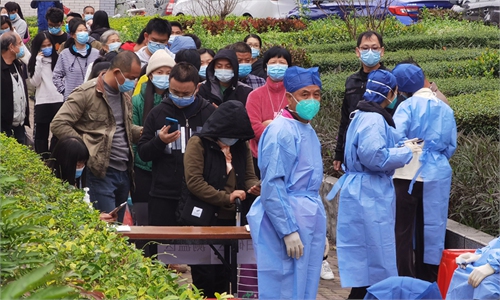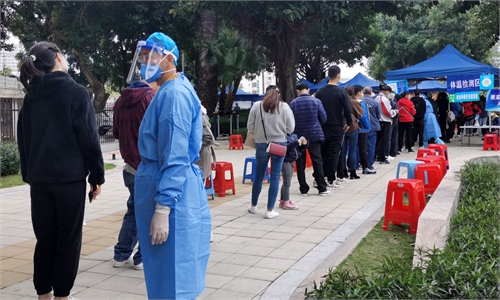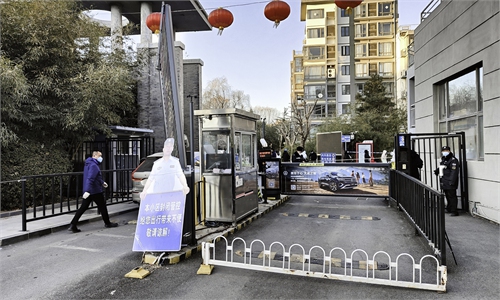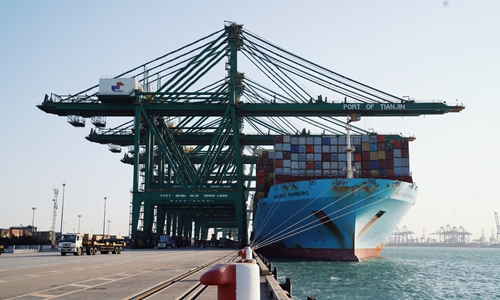Virulence of Omicron should not be overlooked as China faces imported cases: Zhang Wenhong
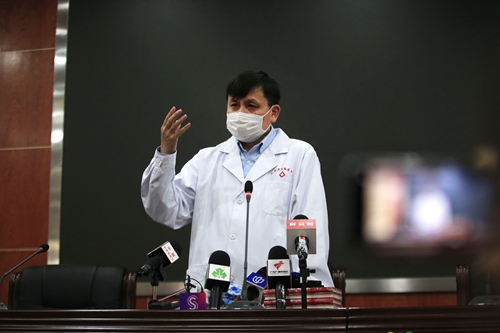
Doctor Zhang Wenhong dismisses concern that recovered #COVID-19 patients who test positive again might transmit infection to others at a press conference held in Shanghai. Photo: Yang Hui/GT
The Omicron variant brings fewer serious illnesses but its virulence should not be overlooked, warned Zhang Wenhong, a renowned Chinese infectious disease expert in Shanghai as China registered Omicron infections in at least six cities, including Beijing and Shanghai.
China will continue to face a high risk of imported cases in the next half year, but this cold winter will probably be the last winter in the pandemic following the increasing herd immunity level and the new COVID-19 drugs, Zhang, the head of the Center for Infectious Diseases with the Shanghai-based Huashan Hospital of Fudan University, said in an interview with the China Central Television on Saturday.
Beijing has become the latest city to register an Omicron-infected case after Shanghai, Zhuhai and Zhongshan in South China's Guangdong Province, North China's Tianjin and Anyang in Central China Henan Province.
The international community has shown a relatively lower resolution toward the fight against Omicron, with some experts saying Omicron could probably infect everyone. But the Omicron could still cause severe consequences, Zhang said.
With a high rate of vaccination in the US, fatality rate of COVID-19 infections is around 0.24 percent. That rate is about 2.4 times higher than that of the seasonal influenza which is 0.1 percent, Zhang said.
But Zhang stressed the importance of receiving a booster shot as it could raise the number of anti-bodies significantly. As for a fourth shot, Zhang believes it is too early to consider it.
Zhang believes in the coming year, whether it is the level of herd immunity, the immune barrier established through vaccines, or the launch of COVID-19 drugs, the situation will get better.
Global Times
